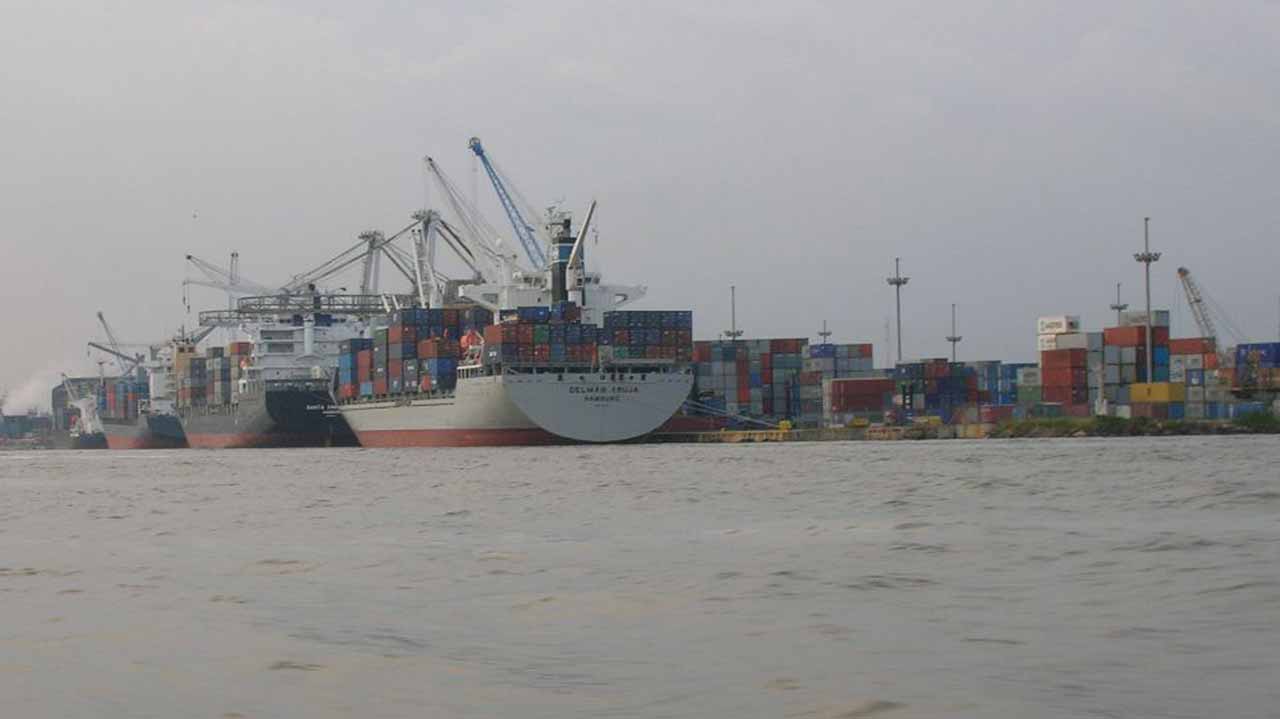 There are concerns over significant revenue losses and capital outflows resulting from foreign shipowners handling 100 per cent of the affreightment for major infrastructural projects in Nigeria, including the planned Lagos-Calabar rail scheme.
There are concerns over significant revenue losses and capital outflows resulting from foreign shipowners handling 100 per cent of the affreightment for major infrastructural projects in Nigeria, including the planned Lagos-Calabar rail scheme.
The lack of indigenous shipping capability and the absence of a Nigerian-flagged merchant facility to transport necessary heavy equipment and materials are negatively impacting the economy.
While the challenge has been on, the proposed Lagos-Calabar rail line, a project to enhance economic activities within the regions, would still heavily rely on importation, as the materials would be imported via foreign vessels, which not only escalate cost on account of freight rates but also deprive Nigeria of huge revenue.
The most populous black nation loses approximately between $9.1 billion and $17 billion yearly to affreightment across sectors.
Importers and project contractors are facing delays and increased costs, which ultimately affect the average consumer through inflated prices and reduced efficiency of market dynamics. Higher project costs also mean less budgetary space for other developmental initiatives, perpetuating a cycle of economic inefficiency.
Managing Director of Jevkon Oil & Gas and immediate past president of the Ship Owners Association of Nigeria (SOAN), Dr. McGeorge Onyung, regretted that the nation is not capitalising on the $14 trillion ocean economy.
He said by contracting the equipment and materials for the Lagos-Calabar rail project to China, Nigeria has enriched Chinese shipowners.
Onyung observed that foreign shipping lines earn about $300 million yearly as profit from handling 70 per cent of cargo traffic that Nigeria controls in West and Central Africa.
Nigeria’s over-reliance on foreign ships for imports and exports leads to higher freight costs and prolonged cargo delivery times, thereby impacting the prices of goods, inflating costs for consumers and reducing the competitiveness of local products on the global market.
The cost of shipping a 20-foot and 40-foot container from the United States to Nigeria ranges between $4,000 and $6,000, depending on the pickup and drop-off locations. From Europe, the cost varies between $3,542 and $5,494, while from China, it hovers around $3,000 and $5,000.
Additionally, shipping a container from Italy costs between €4,000 and €7,500.
Unfortunately, the Lekki Deep Seaport, expected to revive Nigeria’s maritime honour and revenue generation, reportedly received 75 foreign vessels and handled 100,000 containers within its first year from April 2023 to April 2024.
According to statistics from the Nigerian Ports Consultative Council (NPCC), a total of 3,778 ships berthed in Nigerian seaports in 2023, while 3,957 vessels berthed in 2022.
The Nigerian Ports Authority (NPA) reported that 4,100 vessels were received in 2021, 4,054 in 2020, and 3,259 in 2019. Additionally, 3,878 vessels were received in 2018 and 3,897 in 2017.
Regarding container throughput, in 2023, Nigerian ports handled 874,683 Twenty-foot Equivalent Units (TEUs) of containerised imports. The figures for previous years were 1,009,312 TEUs in 2021, 892,401 TEUs in 2020, and 892,137 TEUs in 2019. In 2018, the ports recorded 831,314 TEUs, and in 2017, 806,219 TEUs.
Containerised exports also showed significant numbers, with 1,020,511 TEUs recorded in 2021, a sharp increase from 181,406 TEUs in 2020 and 140,116 TEUs in 2019. The year 2018 saw 169,653 TEUs, while 2017 accounted for 483,357 TEUs.
Despite these figures, all ships docked at the nation’s seaports were foreign-owned, as highlighted by the Managing Director/Chief Executive Officer of Starzs Marine and Engineering Limited, Greg Ogbeifun.
The concerns expressed by Ogbeifun and others in the maritime industry highlighted a significant gap in Nigeria’s economic exploitation of its maritime resources.
He stressed the need for indigenous shipowners and the private sector to leverage the Ministry of Marine and Blue Economy to create platforms for actualising government policies that promote global trading fleet through private, public or public-private partnerships.
The call to action extends to addressing government policies, as well as enhancing the national flag registry and reforming tax laws.
He advised government to purchase ships, while private sector players should fund vessels and push for ensure an enabling environment that supports investments.
Onyung referenced the long-unutilised Cabotage Vessel Financing Funds (CVFF), a situation he noted, as detrimental to economic diversification.
He said shipping has the key to unlocking the economic prosperity of this country, as well as creating jobs as seafarers and check round tripping.
Onyung compared Nigeria’s maritime position to that of Denmark, which boasts the world’s most successful shipping company, Maersk Line, generating $1.1 billion monthly in profit as of the last quarter of 2023.
He also highlighted the disparity between Nigeria and countries like China, Norway and Greece, where national shipping enterprises significantly contribute to economic stability and GDP.
Greece, with the largest merchant fleet in the world, has enhanced its economic stability through maritime trade, contributing 7.9 per cent to its national GDP, while its shipping industry generates €14.1 billion yearly.
Also, the public revenue generated, directly or indirectly by the activities of shipping is estimated at €1.9 billion.
Similarly, China’s shipping industry contributes around 10 per cent or $4.32 trillion to its GDP.
The comparison with nations like Greece and China, where maritime activities contribute sizably to their GDPs, highlights the potential benefits of a robust maritime sector.
The necessity for indigenous participation in the predominantly international trade sphere is critical, as stated by the Principal Partner at Justicia Legal Practitioners and former Executive Secretary of the Nigerian Shippers Council (NSC), Hassan Bello.
He argued that direct freight involvement could reflect positively on the economy, with potential yearly earnings of $9.1 billion, contributing $5.4 billion to the GDP and enabling the government to make $1.6 billion yearly.
Bello said these figures underscore a critical economic opportunity for Nigeria and a financial impact on the shipping market, adding that by fostering indigenous participation in international trade through shipping, Nigeria could significantly boost its economic prospects.
He said this will also create numerous employment opportunities, particularly for seafarers and in the maritime industry.
Bello added that to achieve these gains, Nigeria would need to adopt clear and decisive strategies to develop its maritime capabilities.
This, according to him, could involve updating and enforcing maritime laws, improving port facilities, investing in maritime education and training, as well as creating incentives for the private sector’s investment in shipping.






